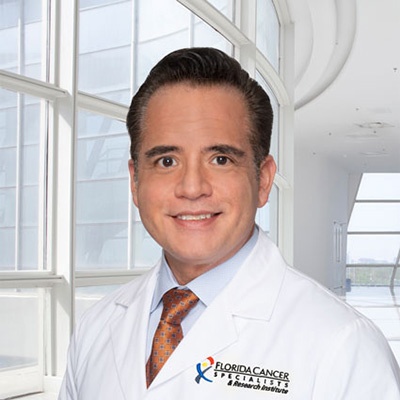

Michael Diaz was named president and managing physician at Florida Cancer Specialists and Research Institute.
Diaz succeeds Lucio Gordan, who has held the position since 2018.
Diaz joined FCS in 2011 and provides care at two FCS office locations in St. Petersburg. Since November of 2018, he has worked as assistant managing physician for the statewide practice. Diaz serves on the FCS Executive Board and is the FCS director of patient advocacy.
Gordan is a member of the board of directors for the Community Oncology Alliance and Florida Association of Clinical Oncology. Gordan will continue to practice as a medical oncologist at the FCS Gainesville Cancer Center and serve as chief medical officer of therapeutics and analytics for the statewide practice.











